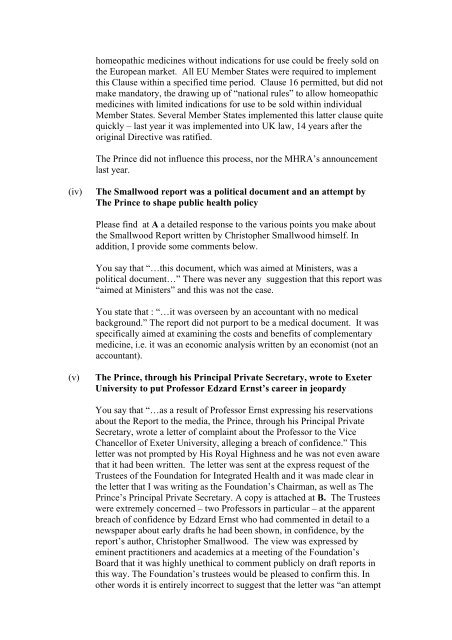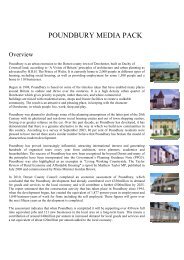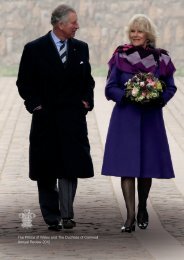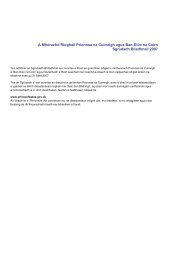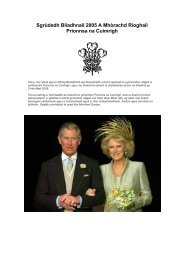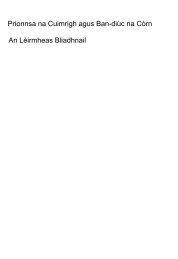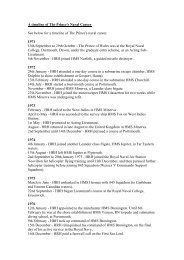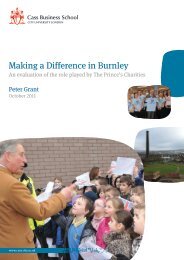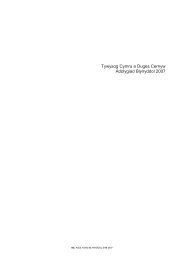5th March 2007 Dear Mr Henshaw, Thank you for your letters of ...
5th March 2007 Dear Mr Henshaw, Thank you for your letters of ...
5th March 2007 Dear Mr Henshaw, Thank you for your letters of ...
You also want an ePaper? Increase the reach of your titles
YUMPU automatically turns print PDFs into web optimized ePapers that Google loves.
homeopathic medicines without indications <strong>for</strong> use could be freely sold onthe European market. All EU Member States were required to implementthis Clause within a specified time period. Clause 16 permitted, but did notmake mandatory, the drawing up <strong>of</strong> “national rules” to allow homeopathicmedicines with limited indications <strong>for</strong> use to be sold within individualMember States. Several Member States implemented this latter clause quitequickly – last year it was implemented into UK law, 14 years after theoriginal Directive was ratified.The Prince did not influence this process, nor the MHRA’s announcementlast year.(iv)The Smallwood report was a political document and an attempt byThe Prince to shape public health policyPlease find at A a detailed response to the various points <strong>you</strong> make aboutthe Smallwood Report written by Christopher Smallwood himself. Inaddition, I provide some comments below.You say that “…this document, which was aimed at Ministers, was apolitical document…” There was never any suggestion that this report was“aimed at Ministers” and this was not the case.You state that : “…it was overseen by an accountant with no medicalbackground.” The report did not purport to be a medical document. It wasspecifically aimed at examining the costs and benefits <strong>of</strong> complementarymedicine, i.e. it was an economic analysis written by an economist (not anaccountant).(v)The Prince, through his Principal Private Secretary, wrote to ExeterUniversity to put Pr<strong>of</strong>essor Edzard Ernst’s career in jeopardyYou say that “…as a result <strong>of</strong> Pr<strong>of</strong>essor Ernst expressing his reservationsabout the Report to the media, the Prince, through his Principal PrivateSecretary, wrote a letter <strong>of</strong> complaint about the Pr<strong>of</strong>essor to the ViceChancellor <strong>of</strong> Exeter University, alleging a breach <strong>of</strong> confidence.” Thisletter was not prompted by His Royal Highness and he was not even awarethat it had been written. The letter was sent at the express request <strong>of</strong> theTrustees <strong>of</strong> the Foundation <strong>for</strong> Integrated Health and it was made clear inthe letter that I was writing as the Foundation’s Chairman, as well as ThePrince’s Principal Private Secretary. A copy is attached at B. The Trusteeswere extremely concerned – two Pr<strong>of</strong>essors in particular – at the apparentbreach <strong>of</strong> confidence by Edzard Ernst who had commented in detail to anewspaper about early drafts he had been shown, in confidence, by thereport’s author, Christopher Smallwood. The view was expressed byeminent practitioners and academics at a meeting <strong>of</strong> the Foundation’sBoard that it was highly unethical to comment publicly on draft reports inthis way. The Foundation’s trustees would be pleased to confirm this. Inother words it is entirely incorrect to suggest that the letter was “an attempt


